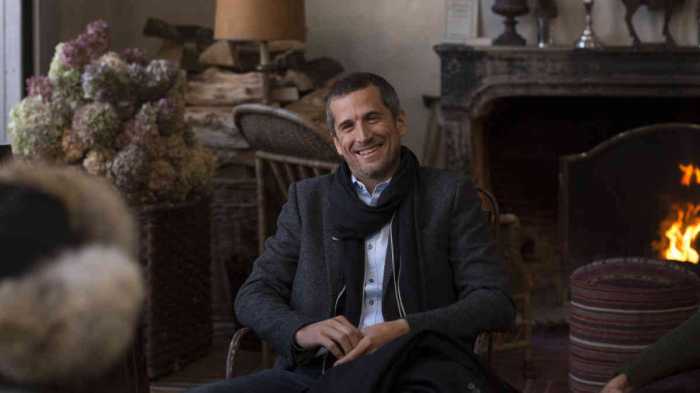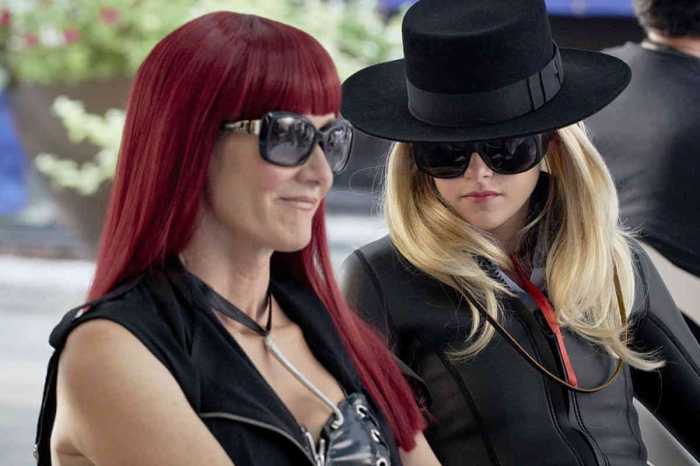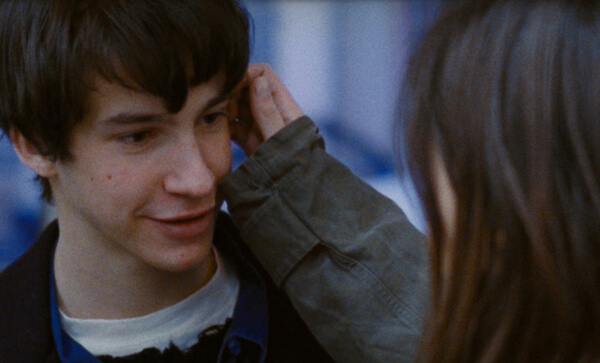Kristen Stewart in Olivier Assayas’ “Personal Shopper.” | CAROLE BETHUEL/ IFC FILMS
French director Olivier Assayas has made a few films that could be loosely described as thrillers: “demonlover” and “Boarding Gate.” However, their thrills are always in quotes, filtered through David Cronenberg’s “Videodrome” (in the case of “demonlover”), Hong Kong director Johnnie To’s action movies (in “Boarding Gate”), and, throughout, radical French philosopher Guy Debord’s ideas about the media overtaking reality.
The Internet was still relatively new when Assayas made “demonlover” in 2000, and its sexual possibilities seemed to frighten the director. Its narrative suggested that it served up kinky sex at best and rape-porn at worst. The ending, in which a teenage boy watches one of the film’s protagonists serving in slavery in an online dungeon, actually felt like something out of a ‘60s educational movie about the dangers of sex, had the Internet existed back then.
It’s now 2017, and every 12-year-old owns an iPhone. Assayas’ new film “Personal Shopper” recognizes the damage people can do to each other online but seems remarkably chill about technology; its heroine Maureen (Kristen Stewart) also uses her cell phone to look at paintings and watch movies. This is a thriller without quotes, a ghost story to rank with greats like Jack Clayton’s 1961 “The Innocents” and Robert Wise’s “The Haunting,” from 1963. While I think it’s better than any film M. Night Shyamalan has made since “Signs,” I can picture Shyamalan fans appreciating it, as long as they’re willing to put up with the fact that a third of “Personal Shopper” is subtitled.
Kristen Stewart, in a world of instant connections, desperate to reach her brother and her past
An American, Maureen lives in Paris and works as a personal shopper for model Kyra. In practice, this means that she goes around to clothing and jewelry shops picking out items — and often trying them on — to buy for her boss. She was very close to her late brother Lewis, who has recently died of a congenital heart defect from which she also suffers. She roams around the house he lived in, begging him to show signs of his presence. A few loud taps and shrieks emerge, but the most conclusive proof seems to be the double-exposure ghostly presence she occasionally sees. On a trip to London, she’s stalked by weird texts on her phone. Despite their mysterious, even menacing tone, she continues responding to them. Are they from a human? A ghost?
Maureen goes through an extremely difficult period in her life — relating all her problems would require spoilers — with a sense of dignity and her head usually held high. If I received the kind of texts she does, I would quickly stop writing back. She seems fascinated by the crossroads at which she finds herself. Having lost her brother, she’s desperate for signs of his presence, even if they’re as trivial as a small flood of water or a knock on the wall.
Although Stewart is a major star in the US, Assayas has now cast her twice as a character in a relatively subservient role in the French entertainment industry. Maureen seems to be searching for a life of her own, and her job isn’t helping her free herself. As much as she loves Lewis, her attachment to the possibility of his lingering isn’t really doing her any good either.
Assayas has always been a skillful visual stylist, particularly as a director of his cinematographers’ use of Steadicam tracking shots. In “Personal Shopper,” sound often seems to take precedence over image. The paranormal has no speaking voice. Maureen becomes fascinated by the history of mediums and séances, even watching a stiff made-for-TV movie on her phone about Victor Hugo’s interest in séances. But she doesn’t participate in any; she’s attempting to contact Lewis all on her own. Assayas leaves it up to both the character and the spectator to interpret the sounds she hears. Is knocking on the wall a sign of supernatural presence or just the building settling?
Although he’s made one film set in the 19th century and three among the ‘70s counterculture in which he participated as a teenager, Assayas has a reputation as a hyper-modern director. “Personal Shopper” suggests we’re using technology to hurtle backwards past rationality. (The links between avant-garde art and séances are brought up several times.) And I don’t know if Assayas thinks this is a bad idea. This is a beautiful film about Western culture’s unsettled fear of death, which no amount of computers and cell phones can take away.
PERSONAL SHOPPER | Directed by Olivier Assayas | Sundance Selects | In English and French with English subtitles | Opens Mar. 10 | IFC Center, 323 Sixth Ave. at W. Third St. | ifccenter.com



































